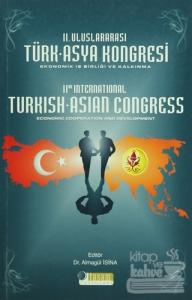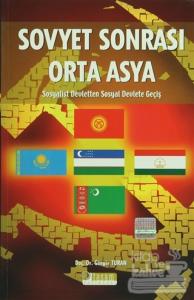
In an era where “soft power” and “smart power” have taken the place of “hard power”, international politics have gone through a change; traditional channels of diplomacy have begun to be performed by the new channels of diplomacy. This new kind of diplomacy, known as “Public Diplomacy” is composed of the communications and interactions that governments built with other countries' public opinions and that various public opinions enter into interaction. In this context, new diplomacy puts more emphasis on the culture and on the constituents of the culture and also on the civil society.
International politics have gradually begun to be based on dialogue rather than wars and conflicts. “Cultural Diplomacy” which might be defined as the inter-change of opinions, information, arts, life styles, systems of value, beliefs, traditions and other aspects of culture among the countries, is a political instrument that come to the fore on the peaceful resolution of the civil conflicts and on providing the stability.
In a world where the frontiers are being blurred gradually, it is inevitable that a culture area influences the other or be influenced by it. Keeping this in mind, the Balkans, having a substantial cultural tissue, is one of the regions where the possibility of this kind of interaction is very high. The Balkan region is the meeting point of various cultures. This diversity which was forgotten during the years of war and ethnic conflicts is seen today as one of the key factors of living in peace with harmony in the region. To achieve this, “Cultural Diplomacy” emerges as a valuable asset for putting into practice the culture of co-existence and co-operation in the Balkans by including both governments and civil society organizations.
In an era where “soft power” and “smart power” have taken the place of “hard power”, international politics have gone through a change; traditional channels of diplomacy have begun to be performed by the new channels of diplomacy. This new kind of diplomacy, known as “Public Diplomacy” is composed of the communications and interactions that governments built with other countries' public opinions and that various public opinions enter into interaction. In this context, new diplomacy puts more emphasis on the culture and on the constituents of the culture and also on the civil society.
International politics have gradually begun to be based on dialogue rather than wars and conflicts. “Cultural Diplomacy” which might be defined as the inter-change of opinions, information, arts, life styles, systems of value, beliefs, traditions and other aspects of culture among the countries, is a political instrument that come to the fore on the peaceful resolution of the civil conflicts and on providing the stability.
In a world where the frontiers are being blurred gradually, it is inevitable that a culture area influences the other or be influenced by it. Keeping this in mind, the Balkans, having a substantial cultural tissue, is one of the regions where the possibility of this kind of interaction is very high. The Balkan region is the meeting point of various cultures. This diversity which was forgotten during the years of war and ethnic conflicts is seen today as one of the key factors of living in peace with harmony in the region. To achieve this, “Cultural Diplomacy” emerges as a valuable asset for putting into practice the culture of co-existence and co-operation in the Balkans by including both governments and civil society organizations.










